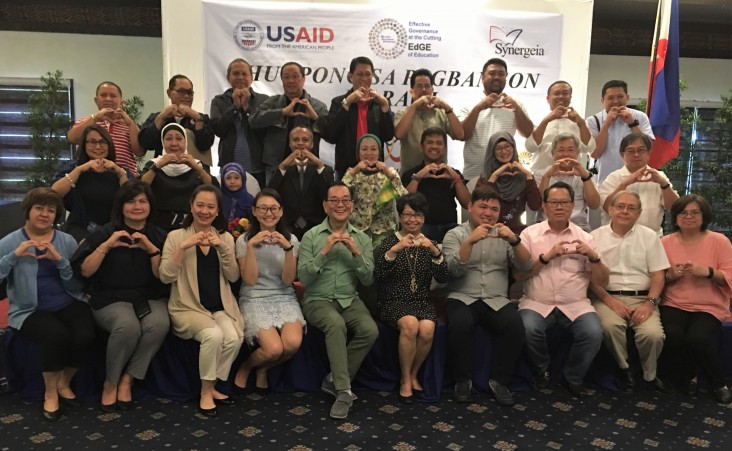Speeches Shim

[As Prepared]
[Greetings]
I am very excited about today’s event, that reinforces the shared commitment of the United States and the Philippine governments to expand access to inclusive, quality education for all – especially the most marginalized and vulnerable.
We at USAID believe that education serves as a driver for development and poverty reduction. Education is transformational for individuals and societies. It creates pathways to better health, economic growth, a sustainable environment, and peaceful, democratic societies.
Since 2013, USAID has been working with Synergeia Foundation to implement the Education Governance Effectiveness project, more commonly known as EdGE. Through EdGE, USAID is improving learning in the early grades and increasing government effectiveness, transparency and accountability for education at the local level by increasing participation in education policy formulation and implementation.
To date, USAID and Synergeia have trained more than 9,000 education administrators and officials and distributed more than 120,000 teaching and learning materials. We have organized nearly 300 education summits, which have resulted in more than 300 barangays and school boards increasing funding for education programs. As of today, our partnership has reached over 2.1 million students.
This brings me to the most important part of today’s event. I am pleased to announce that USAID is extending our partnership with Synergeia so that we can carry on with our work to support the Philippine government’s reform in education through decentralization.
An important component of this extension is the Marawi Women’s Voices for Peace program, which seeks to address the distinct, urgent needs of displaced women and girls by safeguarding their rights and ensuring their inclusion in the rebuilding of Marawi.
A number of recent reports have shown that the conflict has greatly affected hundreds of thousands of individuals, and women disproportionately bear the brunt of the costs of the conflict. Among the specific gender issues reported are issues related to mobility, displacement, economic burdens, psychological trauma, and lack of participation in the peace processes, governance, and transitional justice mechanisms. Quite simply, the conflict has disproportionately increased the vulnerability of women.
We know that our work with Synergia will be difficult. According to a study by Oxfam, United Youth of the Philippines-Women, and Al-Mujadilah Development Foundation, the most difficult challenge confronting those displaced by the conflict is securing quality education for children and youth. We hope to help.
Through EdGE, USAID and Synergeia will tear down barriers to education and bring displaced girls back to school. We will organize workshops for local school officials and parent-teacher associations, provide sports and art lessons for girls. We will build public-private partnerships for school facility improvements, and engage with local communities.
We are excited to partner with the local government units represented here today, including Marawi, Taraka, Piagapo, Saguiran, Ganassi, Balindong, Kauswagan, Kapatagan, Calanogas, Cagayan de Oro and Iligan. Thank you for being our partners. We are thrilled to partner with you on education reform and to help transform Marawi into a place where all young girls and boys have access to education, health services, and an effective government.
The U.S. government remains committed to helping the Philippines meet its education objectives. By working together, we can improve education for all of our children, but especially for those girls who have suffered the most from the recent conflict. I am honored to be a part of this, pleased to witness your commitment, and excited to celebrate the beginning of this new phase of our partnership. Together, we look to create a more vibrant future for all children, who are the future leaders of their communities, and of the country.
Maraming salamat po!

Comment
Make a general inquiry or suggest an improvement.